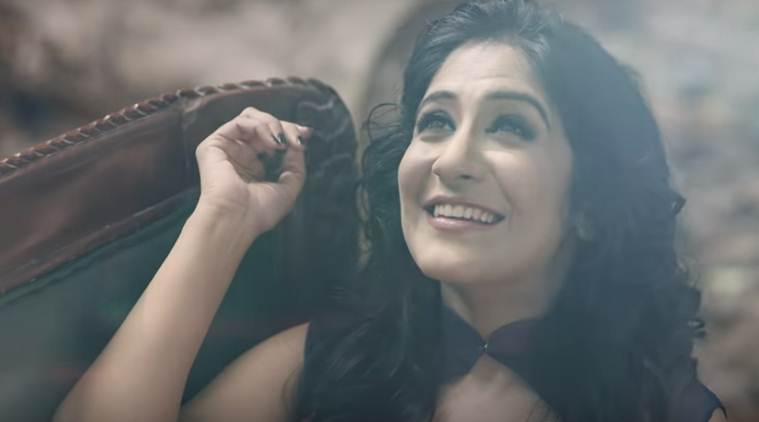 With more than 270,000 views, Yaavum Enadhe (Sab Mera Hai in Hindi) features Shwetha Mohan in her performing avatar as well.
With more than 270,000 views, Yaavum Enadhe (Sab Mera Hai in Hindi) features Shwetha Mohan in her performing avatar as well.
“Right from the time I started singing, the idea of doing an independent song excited me,” begins Singer Shweta Mohan as we settle to talk about her first single. “We didn’t have avenues like YouTube back then. I have known the composer Bennet Roland for years now and Yaavum Enadhe was a concept that evolved from the years of discussions we have had about music. The independent market is opening up slowly and I am happy it is happening now.”
With more than 270,000 views, Yaavum Enadhe (Sab Mera Hai in Hindi) features Shwetha in her performing avatar as well. “I am actually camera conscious. Performing live on stage is the only thing that helped,” she says. With more singles in the pipeline, an album could soon be in the offing. The freedom that the independent space provides is creatively rewarding, believes Shwetha Mohan. “It is a change that musicians have been expecting. I am also glad that music lovers have also begun to look outside of films for music. It is a blessing for music lovers and musicians.”
She further adds that such alternate mediums have become necessary now for the music industry to flourish. “Not everyone gets the opportunity to work in films — that is dependent on several other factors. Also, there used to more than 10 songs in a film in the early days. It reduced to six and now, few films don’t have songs at all. Supply is more than demand which is why more such avenues need to open for the music industry to flourish,” she reasons.
While there were a few voices and musicians who defined the music from our previous generations. With the advent of the Internet and social media, no singer or musician enjoys that kind of a hold over the audience’s imagination. However, Shweta believes that any musician with talent and originality will find and sustain their place in the spectrum. “Every music director has a voice in his mind when he composes a song. Take me for example, when there is a melody or a soft song, they think of Shweta. So it is important to have originality. We have Chitra Akka to sing like Chitra Akka, there has to be something more.”
That was also her biggest challenge initially admits Shwetha. Being the daughter of veteran singer Sujatha Mohan, people didn’t have to go far for a comparison. “Especially with my first few songs, people thought it was my mother. When I started recording, people used to tell me that I sounded just like my mom. I knew that they meant it as a compliment, but for me, I had to show that I was different.“ With time, Shwetha carved a space for herself dabbling in different genres, making the audience familiar with her style. “While my voice might be similar, our styles are distinctly different. Now, listeners recognise that,” she points out.
When we ask Shweta about her defining factor, she takes a long pause to think. “When you perform something, there is a space where you know you are really connecting with the song. I feel I am able to do that,” she says, wondering if that reaches out to the listener in the same breath. “And maybe the slight husk of my voice. You shouldn’t be asking me this!” she says with a laugh.